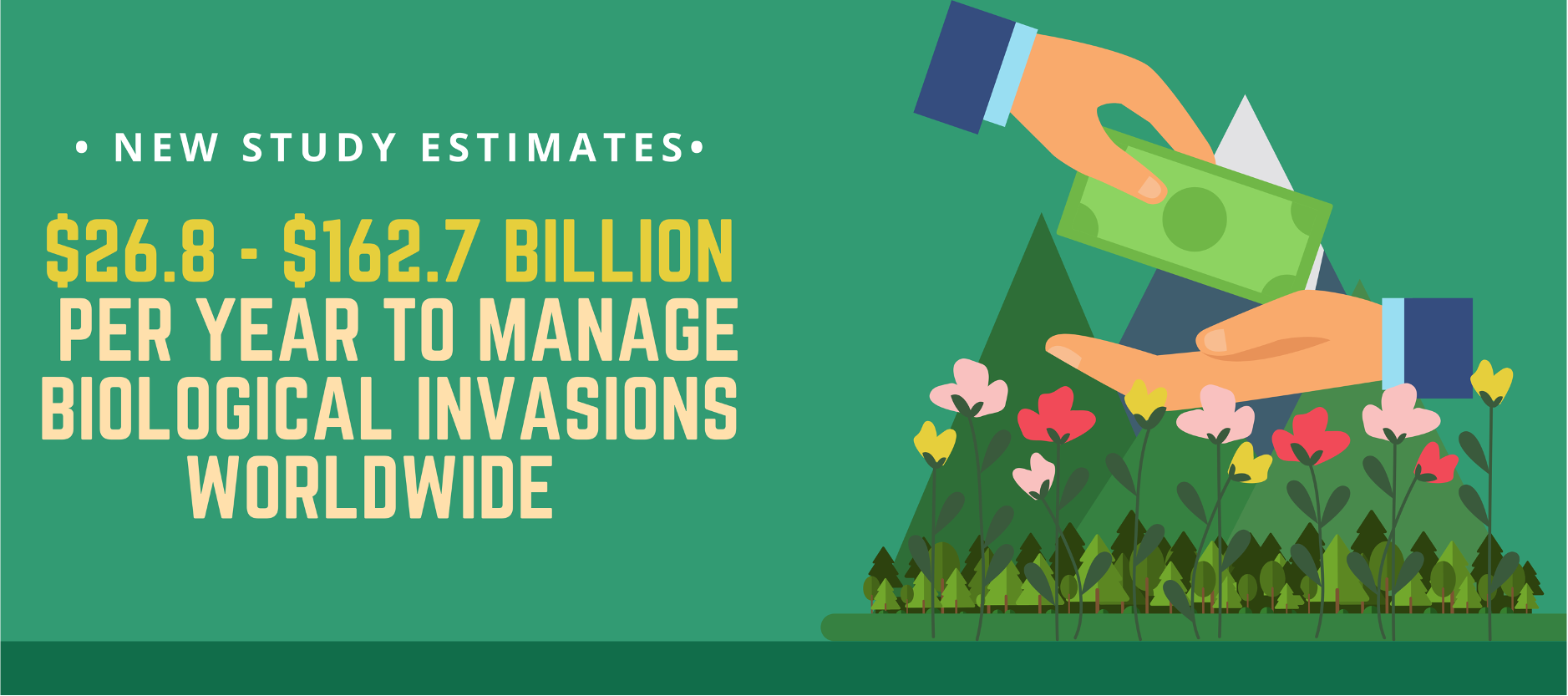 We have known that invasive species cost money to control in addition to the costs associated with impacts to human health, the economy, and environment, but a global cost estimate has alluded us until now.
We have known that invasive species cost money to control in addition to the costs associated with impacts to human health, the economy, and environment, but a global cost estimate has alluded us until now.
After five years of study, the international research team directed by scientists from the Écologie, Systématique et Évolution (CNRS / Paris-Saclay University / AgroParisTech) research unit have reached an estimate of the cost to human society of invasive species: at least $1.288 trillion in the period from 1970 to 2017. While this yields an annual average of $26.8 billion, the yearly bill actually tripled each decade. In 2017 alone, it hit $162.7 billion, or 20 times the combined budgets of the WHO and the UN Secretariat that year.
Yet the costs of biological invasions remain vastly underestimated and under-reported. They have ballooned over the last decades, and no reversal of the trend is visible on the horizon since the continued expansion of international commerce and transport generally brings with it more invasive species. Furthermore, the researchers note that expenses associated with preventing, monitoring, or combating the spread of these species are trifling in comparison with the cost of the damage they cause. The ravages of biological invasions by exotic species as diverse as the Asian tiger mosquito, red imported fire ant, floating primrose willow, zebra mussel, and black rat each account for losses of tens of billions of dollars.
This research has provided the first complete tally of reported costs resulting from biological invasions around the world, all species combined. It is based on the conservative analysis of 850 studies, covering 2,419 cost estimates that the team of scientists standardized to enable comparison and categorization, according to forty-some variables (e.g., species, region, habitat, and economic sector), within the InvaCost database, whose ongoing development affords a real-time snapshot of the costs associated with biological invasions.
The work of these researchers was made possible through financing of the InvaCost database by the BNP Paribas Foundation and the AXA Research Fund, via the Paris-Saclay University Foundation’s Chair of Invasion Biology. Their findings plea for implementation of management measures and international political agreements aimed at countering the uncontrolled dissemination of invasive species over the next decades.